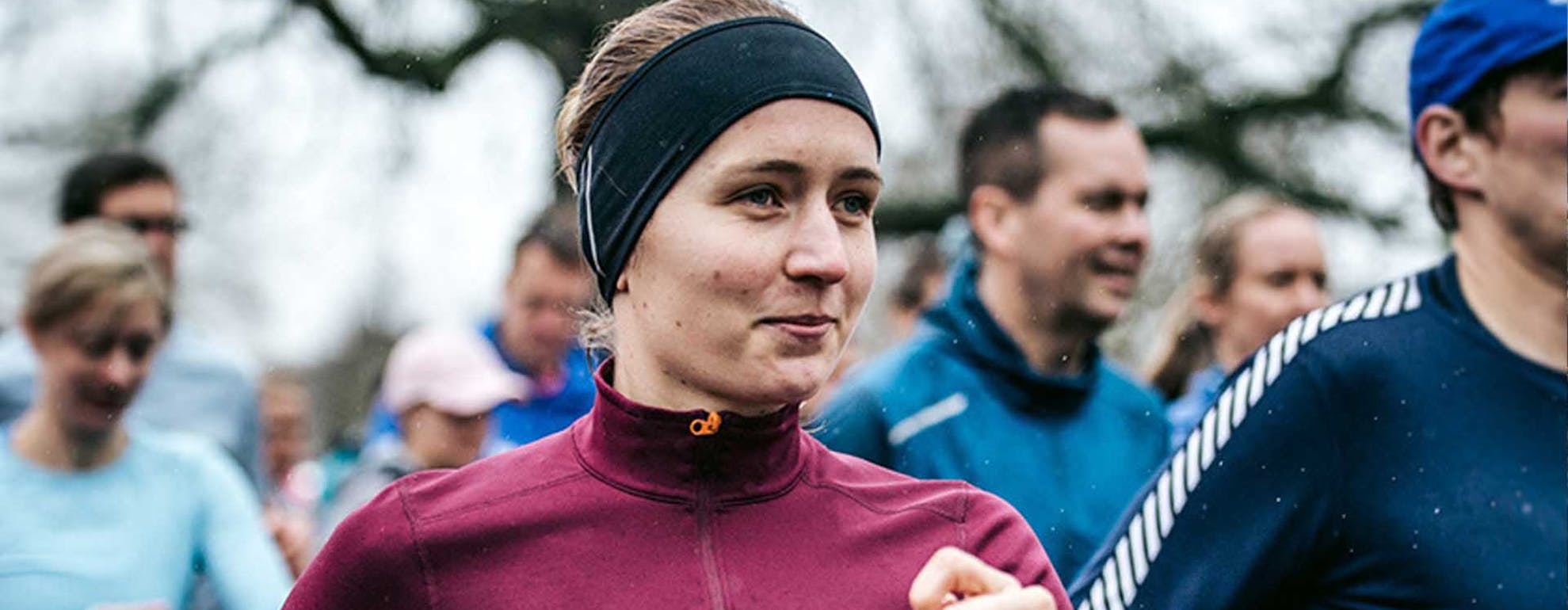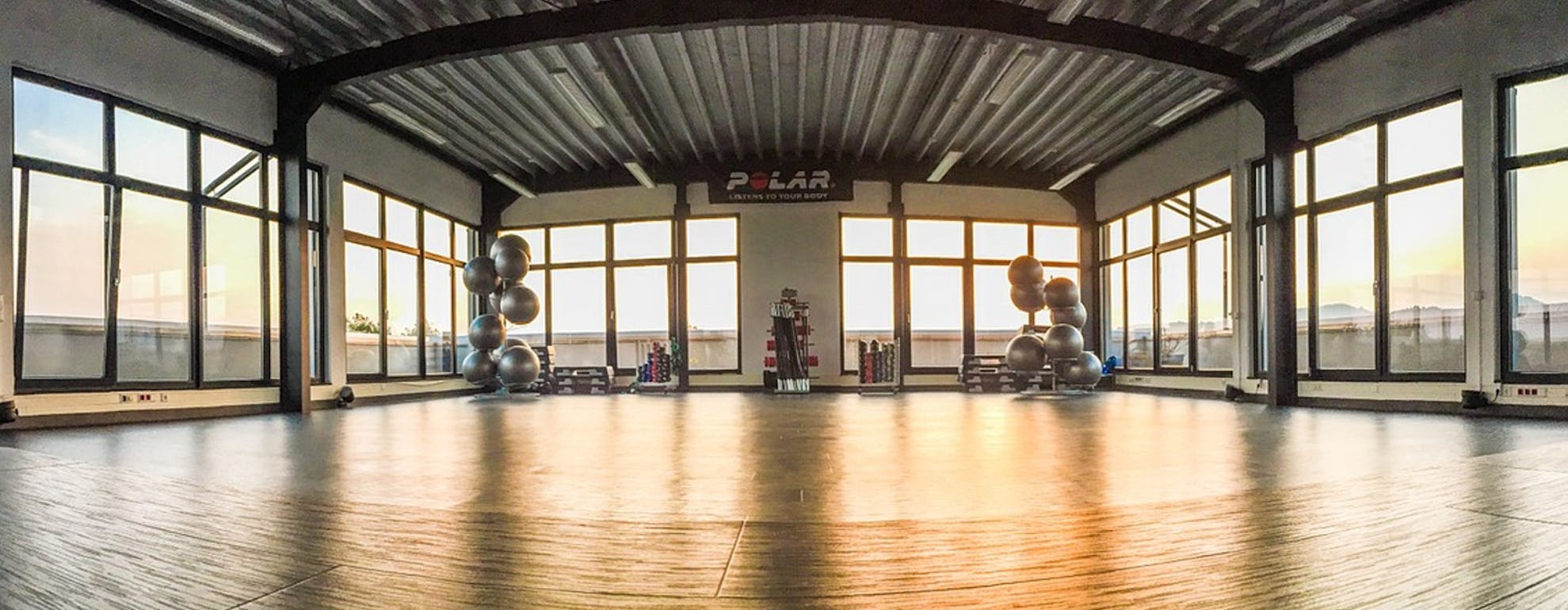
Why you should start Running: A Beginners Guide
26 August 2020
There are a huge number of positive reasons for taking up regular exercise. Anyone who has recently started running, or is returning after a break, will have probably had to go through a few tough runs at the start. But, as they all will tell you, stick with the training and soon your fitness will improve and running will become easier - you'll notice better breathing, stronger strides and that wonderful feeling known as the running buzz!
ㅤ
ㅤ
1. 7 BENEFITS OF RUNNING
If you're still not sold on pulling on your trainers and getting out in the fresh air to pound the pavement or leafy trail, then here are just seven of the many reasons why we should all love a good run!
ㅤ
KEEPS BLOOD VESSELS AND HEARTS HEALTHY!
It's a well-known fact that regular exercise such as running can help regulate blood pressure by keeping your heart and arteries in good shape and improving circulation. Recent US studies have shown that staying fit with regular exercise can help reduce the risk of heart disease by as much as half.
ㅤ
MOOD BOOSTING!
The stress relieving effects of running are a reason why more and more of us are training regularly, especially those leading busy lives. In fact, within just five minutes of easy jogging you'll start to feel a mood enhancing effect. Not only that, but research shows exercise can also help long-term depression too.
ㅤ
FAT BURNING!
Depending on your weight and the speed at which you run, exercising for just 10 minutes can burn between 90-200 calories. It gets better, that run might even increase your metabolism and help you to burn more calories for hours afterwards.
ㅤ
LIBIDO BOOSTING!
Recent studies in the US and Australia have shown that weight loss can help boost sex drive and performance in bed.
ㅤ
BONE BUILDING!
Impact exercises such as running, which load the joints and bones of the lower body, promote growth of better bone density. The result is that just 15 minutes of running three times a week can build bones and help reduce the risk of osteoporosis later in life by as much as 40 percent.
ㅤ
RAISES MONEY FOR GOOD CAUSES!
Set yourself the challenge of running a 10k, half marathon, marathon or even a Tough Mudder and not only will you have a most excellent training goal, but you can help raise funds for charity. Sites such as JustGiving.com make it super easy to receive donations from friends, family and workmates for almost all registered charities.
ㅤ
AN EXCUSE TO BUY NEW KIT!
There's something very exciting about buying new running gear. Whether it's simply a new pair of padded sweat-wicking socks, new trail shoes or the latest high-tech GPS watch that tracks your every step, getting new kit can help keep your running healthy, on track and training plans solid. Our website and running hub provide detailed product information, including specific kit recommendations and expert reviews.
ㅤ
2. HOW TO GET STARTED RUNNING
Now that hopefully I've got you all geared up to get out there, let me share with you some tips to help ease your entry into running regularly.
ㅤ
Before you start Running;
ㅤ
FIND YOURSELF A GOAL
Giving yourself something to train for can really help hold you to a running plan. Register to run at a local distance event 3-6 months in the future (5k, 10k, half marathon, it's up to you) and this will help you stick to training whatever the weather.
ㅤ
CHECK YOUR HEALTH
If it's been a while since you last exercised, you’re over 45 years of age or have a risk factor, such as high blood pressure or high cholesterol, then before you embark on your new running regime it's probably wise to get a quick MOT from your GP or health professional.
ㅤ
GET THE RIGHT SHOES
Running shoes are the most important part of your kit. Get them wrong and, as you increase your running distance or speed, you might be setting yourself up for long term injury. If you think you've got a pair of trainers already that might do the job, another word of warning: running shoes are designed to help you do just that, and a pair of fashion trainers or tennis shoes are unlikely to cut the mustard. It's best to check out your foot type and choose and invest in a shoe that's right for you before you begin. Our Running Shoe Finder is the most accurate and helpful online tool available, as it helps you to find your perfect shoe by asking the necessary questions based on gender, surface/terrain, pronation, budget and size. In addition to this you can also use our online gait analysis for expert advice.
ㅤ
3. HOW TO START TRAINING FOR RUNNING
TRAIN SMART
If you're new to running it's important you give your body ample time to adapt to the distance. The best advice is to ease into things gently and increase distance or time gradually to allow physiological adaptations to take place. Depending on your current fitness level this might involve just starting with three weekly 30 minute walks for the first few weeks. Or, if you feel fit enough, you could start with regular 30 minute sessions of small slow jog intervals interspersed with brisk walking for recovery.
ㅤ
KEEP IT REGULAR
By making sure you fit at least three runs in weekly it will help keep you motivated and on track.
ㅤ
SQUEEZE IN SOME SPEED WORK
Once you've got to the stage where you're able to run non-stop for 30 minutes without a walk break, you might want to start spicing up your weekly training with some speedwork. Adding a weekly session where you run short, fast intervals followed by walk/slow jog breaks for recovery and you'll help accelerate your fitness gains.
ㅤ
WEEKLY LONG RUN
Again, when you're able to achieve 30 minutes of continuous running, add a weekly long run to your training. Challenge yourself to run for 10 percent longer on one run during the week.
ㅤ
4. HOW TO MAKE RUNNING A HABIT
STAY ON TARGET
Hopefully just thinking of the goal you set yourself will be enough incentive to keep you on track with training, but if you start finding it hard to head out each night for your run, don't worry as there are plenty of other ways to stay motivated.
ㅤ
FIND A FRIEND
Training with a friend or a group with similar fitness levels can be a huge motivator. Better still, if you all have the same goal e.g. the same target race, then you can train together, share similar training plans, chat about how you're progressing and meet up for comfort and support on race day.
ㅤ
KEEP IT INTERESTING
The secret to staying motivated is to keep things interesting, so this could mean changing your regular running route. For example, adding a hill into your regular session or on different terrain such as off-road trails and paths (although be careful not to injure ankles and feet on uneven ground or rooty paths if running for the first time). Check out our Beginners Guide to Trail Running for more information and advice.
ㅤ
REWARD YOURSELF
Once you've achieved your goal or reached a particular milestone, make sure you take the time to praise and reward yourself. Try and avoid cakes and unhealthy food choices as rewards and instead plan an exciting trip or (my personal favourite) head out and buy yourself some swish new running kit! Head over to our site to discover all the latest products.
ㅤ
5. BEGINNER’S RUNNING FAQS
CAN I RUN EVERY DAY AS A BEGINNER?
If you are completely new to running then it is not advisable to run every day. Start by setting yourself small and manageable goals, ensuring that you rest and recover in between each run. Build up your fitness by steadily increasing your mileage. For further information and advice, check out our 5 top-tips to Building Mileage.
ㅤ
WHAT IS A GOOD RUNNING PACE FOR A BEGINNER?
Anything between 10-14 minute miles is generally considered to be a reasonable pace, but as a beginner you shouldn’t worry too much about speed. The most important thing is to enjoy your running, without putting any unnecessary pressure on yourself to run fast. First, learn how to pace yourself by focussing your attention on completing runs without stopping. Over time, your speed will naturally begin to increase. However, if you are really keen to improve your pace, then slowly introduce speed sessions and tempo runs as part of a structured training plan.
ㅤ
HOW LONG SHOULD I RUN AS A BEGINNER?
Initially, it is advisable to run for no more than 4 days per week, for between 15-30 minutes. As your fitness begins to improve, you can gradually increase the length, regularity and intensity of your training. If you’re aiming to build your stamina for long-distance running, then slowly up your mileage and incorporate longer runs into your weekly training.
ㅤ
IS IT BEST TO RUN IN THE MORNING OR EVENING?
Some people are more suited to running early in the morning, whilst others will almost always choose to train in the evening. In reality, it’s best to run when it suits you, so base your decision on personal preference and lifestyle. Going for a run is better than not running at all, so don’t feel pressured to run at a certain time - just go when it suits you and when you’ll most enjoy it. However, if you are training for a particular race, then it is beneficial to try and train at a similar time to that, as your body will be more prepared and conditioned for performing at that particular time of day. You can also practice building other important routines around this (e.g. mealtimes), to help you prepare as efficiently as possible.
ㅤ
HOW DO YOU BREATHE WHEN RUNNING?
Breathing correctly when running is extremely important as your muscles rely on oxygen in order to perform during exercise. Therefore, it is essential to practice and develop your breathing technique to improve your efficiency and maximise performance. Check out these helpful tips on how to breathe better while running.
ㅤ
SHOULD I GO FOR A RUN IF I’M TIRED?
It is impossible to feel at your best every time you go for a run, so it is vital that you listen to your body and respond sensibly. Depending on how tired you are feeling, it’s probably best to change your training by switching to an easier run, or choose to rest completely. You may feel guilty about missing a session (this is normal for any runner!), so weigh up the pro’s and con’s and ask yourself if what you are wanting to achieve will be beneficial or detrimental to your overall fitness and performance. Over time and with experience, you will learn how to read the signs and know what you are capable of achieving based on how you are feeling.
ㅤ
WHAT KIT DO I NEED TO START RUNNING?
Obviously the most important piece of kit is running shoes, so take time to choose the right pair which are best suited to you. The Running Shoe Finder is the most accurate and helpful online tool available, as it helps you to find your perfect shoe by asking the necessary questions based on gender, surface/terrain, pronation, budget and size. Our website also provides detailed expert and customer reviews, which describe each shoe and their performance in detail. Of course, you will also need some suitable running apparel. We recommend technical sports clothing as it’s lightweight in design and increases breathability during exercise. If you decide to take up running more seriously, then additional items such as a GPS watch will really help to track and manage training and performance. Head over to our website to find all the running kit you will need.
ㅤ
Looking for some training tips and advice? Then head over to our Training category where our athletes and experts explain everything you need to know.
Featured Articles
View All


